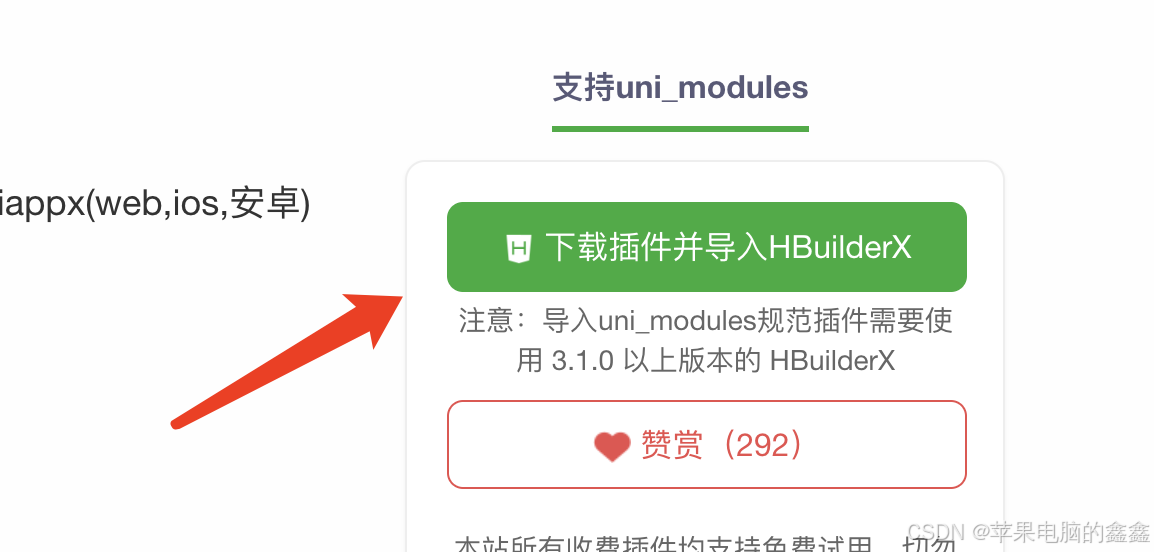在uni-app官网的官网插件中找echarts
打开图片对应的echarts,点击下载并导入插件
如果是vue3使用const echarts = require('../../uni_modules/lime-echart/static/echarts.min');引入echarts
<template>
<view>
<view style="width:750rpx; height:750rpx"><l-echart ref="chartRef" @finished="init"></l-echart></view>
</view>
</template>
<script lang="ts" setup>
// 插件内的 三选一
const echarts = require('../../uni_modules/lime-echart/static/echarts.min');
import { onMounted, ref } from "vue";
// 定义数据数组
const xAxisData: string[] = [];
const data1: number[] = [];
const data2: number[] = [];
const data3: number[] = [];
const data4: number[] = [];
// 循环生成随机数据
for (let i = 0; i < 10; i++) {
xAxisData.push('Class' + i);
data1.push(+(Math.random() * 2).toFixed(2));
data2.push(+(Math.random() * 5).toFixed(2));
data3.push(+(Math.random() + -0.3).toFixed(2));
data4.push(+Math.random().toFixed(2));
}
// 定义强调样式对象
const emphasisStyle = {
itemStyle: {
shadowBlur: 10,
shadowColor: 'rgba(0, 0, 0, 0.3)'
}
};
// 构建图表配置选项对象
const buildOption = () => {
return {
legend: {
data: ['bar', 'bar2', 'bar3', 'bar4'],
left: '10%'
},
tooltip: {},
xAxis: {
data: xAxisData
},
yAxis: {},
grid: {
bottom: 100
},
series: [
{
name: 'bar',
type: 'bar',
stack: 'one',
emphasis: emphasisStyle,
data: data1
},
{
name: 'bar2',
type: 'bar',
stack: 'one',
emphasis: emphasisStyle,
data: data2
},
{
name: 'bar3',
type: 'bar',
stack: 'one',
emphasis: emphasisStyle,
data: data3
},
{
name: 'bar4',
type: 'bar',
stack: 'two',
emphasis: emphasisStyle,
data: data4
}
]
};
};
const chartRef = ref(null);
onMounted(() => {
// 组件能被调用必须是组件的节点已经被渲染到页面上
setTimeout(async () => {
if (!chartRef.value) return;
const myChart = await chartRef.value.init(echarts);
const option = buildOption();
// 先设置基础的图表配置选项
option && myChart.setOption(option);
// 监听brushSelected事件,用于处理图表交互后的操作
myChart.on('brushSelected', function (params) {
const brushed: string[] = [];
const brushComponent = params.batch[0];
for (let sIdx = 0; sIdx < brushComponent.selected.length; sIdx++) {
const rawIndices = brushComponent.selected[sIdx].dataIndex;
brushed.push(`[Series ${sIdx}] ${rawIndices.join(', ')}`);
}
myChart.setOption({
title: {
backgroundColor: '#333',
text: `SELECTED DATA INDICES: \n${brushed.join('\n')}`,
bottom: 0,
right: '10%',
width: 100,
textStyle: {
fontSize: 12,
color: '#fff'
}
}
});
});
}, 300);
});
</script>
